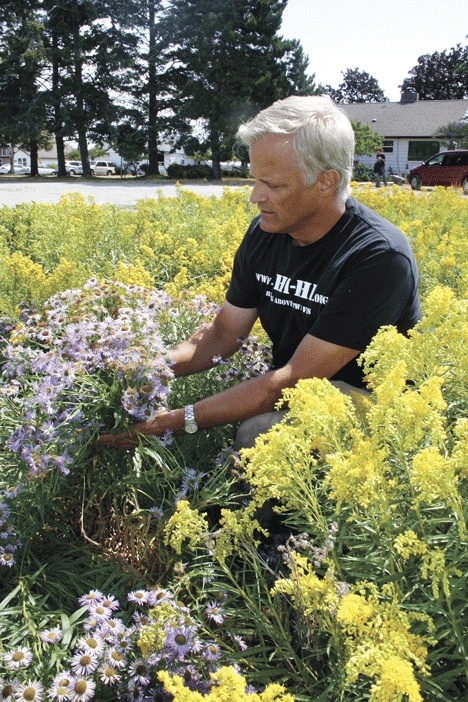Since the Au Sable Institute announced last November the cancellation of classes, the staff has been desperately trying to figure out a way to keep the Coupeville campus open, thus preventing the property from possibly being sold.
The Christian-based, environmental institute is taking a step forward with two classes beginning approximately one year after classes were suspended.
Those two classes, “alpine ecology” and “marine mammals,” have a total of seven students enrolled. They started July 27 and wrap up in three weeks.
Robert Pelant is the director of the Au Sable Institute’s Pacific Rim campus, located on Parker Road near Outlying Field. He said he has been trying to expand the institute’s mission since classes were cancelled for financial reasons. He offered the board of directors, headquartered in Michigan, a plan to expand the campus’ mission and increase its visibility in the community. He hopes to offer programs for school children; short-term adult workshops and continuing education programs; and expanded research opportunities by partnering with such groups as the University of Washington, The Nature Conservancy and Washington State Parks.
He said he doesn’t know when he will hear if his plan will be approved, but he hopes to find out soon.
The Au Sable Institute hasn’t offered classes since the summer of 2008. It currently partners with 55 Christian colleges and universities to provide coursework in ecology, biology and environmental studies. The institute typically offers its courses beginning in the late spring and continuing through the summer.
Pelant said several factors contributed to fewer students taking courses at Au Sable. Many of the partner colleges have seen declines in enrollment and more students are choosing to stay at their home school to take science classes. In addition to the campus near Coupeville, the Au Sable Institute has facilities in Florida, Michigan and India.
When the Au Sable board decided to cancel classes, it also tentatively decided to close and sell the campus, Pelant said. Hoping to save the facility, he approached the board with a way to diversify programs and keep it open.
Typically between 10 and 14 students attend Au Sable courses. He said the decision to offer courses this summer was made late and he didn’t have a lot of time to advertise.
The Au Sable Institute is located on 175 acres located at the edge of Ebey’s Landing National Historical Reserve.
In addition to college courses, some research is conducted on the grounds. Most notably there is a native prairie remnant growing at Au Sable and researchers are looking at ways to expand it. Au Sable has been operating east of Coupeville for more than 10 years. Most of the land is abandoned agriculture land. In previous years it served as a state game farm and, in the early 20th Century, was used by several families to graze sheep. Pelant said researchers hope to transform the former pasture land back into native prairie.
The Au Sable Institute land also plays an important role in Ebey’s Reserve because its located near its southern entry.
Reserve Manager Mark Preiss said the Trust Board of Ebey’s Landing fully supports the institute as it transitions into this new direction.
He said he hopes a partnership can be formed with the reserve and the institute. Reserve officials hope to work with the institute to place hiking trails and a visitor’s center on the south side of the reserve, Preiss said.
Should the worst-case scenario happen and the campus goes up for sale, Pelant said it should probably go to another nonprofit organization because of the zoning restrictions that are placed on the property.
The Au Sable Institute is one of two areas in Island County that are zoned as a “special review district.” The other is the Greenbank Farm.
Island County Senior Planner Anthony Boscolo said the review district is used in areas where traditional zoning designations don’t typically apply.
Properties zoned under a special review district have a master site plan developed and the uses for that property are based on that plan.
Boscolo said a special review district gives predictability to how a property is used and places limits on the land.
Pelant said it would be a monumental task to change the property’s zoning that could take years to complete. That’s another reason why the Au Sable board may give the institute a new lease on life.



